Learning Technique

What is the proper breathing technique while running ?
Proper breathing technique is crucial for runners to improve performance, reduce fatigue, and prevent injuries. Diaphragmatic breathing involves taking deep breaths using the diaphragm muscle for efficient oxygen exchange. Rhythmic breathing matches breathing rhythm to stride pattern, promoting even and consistent breathing. Nasal breathing warms and humidifies air, but mouth breathing can be used when necessary. Relaxation and good posture are also important for optimal breathing mechanics. Incorporating these techniques into your running routine can enhance your overall running experience.

What are some common mistakes people make when learning to swim ?
When learning to swim, common mistakes include forgetting to breathe properly, tensing up too much, not using proper technique, and overestimating abilities. To avoid these mistakes, focus on deep breathing exercises, relaxing your body, seeking guidance from a qualified instructor, and staying within your comfort zone. With patience, practice, and proper technique, beginners can improve their skills and enjoy a safer and more enjoyable swimming experience.
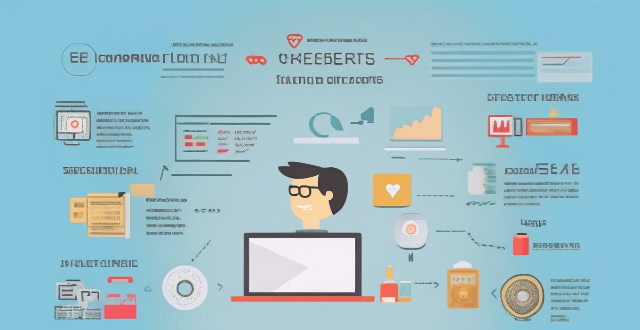
What is the Pomodoro Technique and does it really work for enhancing focus ?
The Pomodoro Technique is a time management method designed to improve focus and productivity. It involves working for 25 minutes followed by a short break, with longer breaks after every four Pomodoros. The technique aims to enhance concentration, manage time effectively, reduce procrastination, and boost overall productivity. However, its effectiveness can vary based on individual adaptability and workflow.

What are some effective techniques for memorizing grammar rules ?
The article outlines various techniques for memorizing grammar rules effectively. It suggests methods such as repetition, using mnemonic devices, visualization, practice, teaching others, contextual learning, and taking regular breaks. Each technique is explained with examples and tips to make the learning process easier and more enjoyable. The article emphasizes the importance of consistency and patience in mastering grammar rules.

What are some strategies for studying for multiple subjects at once ?
Strategies for studying multiple subjects at once include creating a study schedule, using time management techniques, setting clear goals, employing active learning techniques, staying organized, taking care of oneself, and seeking help when needed. These methods can help maximize learning potential and manage time effectively.

How do I learn to swim ?
Learning to swim requires patience, practice, and perseverance. Here are some tips to help you get started: 1. Find a suitable location: Look for a pool or body of water that is safe and accessible. 2. Get the right gear: Invest in a good quality swimsuit, goggles, and swim cap. 3. Start with basic techniques: Begin by learning basic techniques such as floating, kicking, and breathing. 4. Take lessons: Consider taking lessons from a qualified instructor who can teach you proper techniques and provide feedback on your progress. 5. Practice regularly: Consistency is key when learning any new skill, including swimming. Set aside regular time each week to practice your swimming skills. 6. Stay safe: Always prioritize safety when swimming. Never swim alone, and always follow pool rules and regulations.
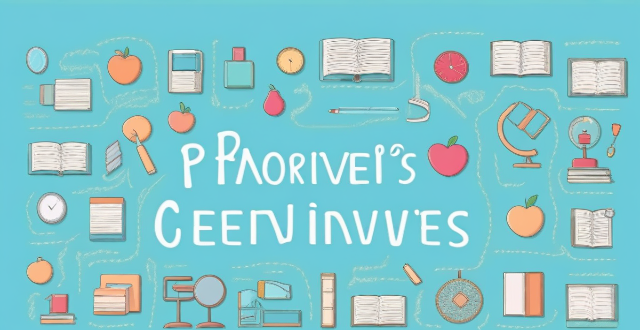
How can I improve my study habits to increase my learning efficiency ?
The text provides a comprehensive guide on how to improve study habits for higher learning efficiency. It suggests developing a consistent study schedule, creating an optimal study environment, using active learning techniques, breaking down study material, employing time management tools, setting clear goals, taking care of oneself, utilizing teaching as a learning tool, seeking help when needed, and reflecting on one's study methods. These strategies aim to enhance focus, concentration, memory retention, understanding, energy, interest, objectives, progress, brain rest, nourishment, knowledge reinforcement, assistance, perspectives, engagement, effectiveness evaluation, and approach adaptation. Consistency and self-reflection are emphasized as key factors in continuous improvement of academic performance.

How important is a golf coach in learning the sport ?
**The Importance of a Golf Coach in Learning the Sport** Learning golf, like any sport, requires dedication, practice, and guidance. One of the most crucial aspects of learning golf is having a good coach. A golf coach plays a significant role in shaping a player's skills, understanding of the game, and overall development. In this response, we will explore the importance of a golf coach in learning the sport. ### **1. Providing Expertise and Knowledge** A golf coach brings years of experience and knowledge to the table. They have a deep understanding of the mechanics of the game, including swing techniques, club selection, and course management. This expertise allows them to provide personalized instruction tailored to each player's needs, helping them improve their skills faster and more efficiently. #### **Key Points:** - Understanding swing mechanics - Club selection advice - Course management strategies ### **2. Identifying and Correcting Mistakes** One of the biggest challenges for beginners is identifying and correcting mistakes in their technique or approach. A golf coach can quickly spot these errors and provide targeted feedback and corrections. This not only helps players avoid developing bad habits but also speeds up their learning process. #### **Key Points:** - Identifying technical flaws - Providing targeted feedback - Preventing the development of bad habits ### **3. Motivation and Accountability** Learning any sport can be frustrating at times, and golf is no exception. A golf coach serves as a source of motivation, pushing players to reach their potential and overcome obstacles. Additionally, having someone to be accountable to can increase a player's commitment to their practice routine and overall improvement. #### **Key Points:** - Providing motivation during challenging times - Encouraging perseverance and resilience - Holding players accountable for their progress ### **4. Customized Training Plans** Every golfer has different strengths, weaknesses, and goals. A golf coach can create customized training plans that cater to each individual's needs, ensuring they focus on areas that need improvement while reinforcing their strengths. This personalized approach leads to more effective training sessions and better overall results. #### **Key Points:** - Tailored training plans based on individual needs - Focusing on areas for improvement - Reinforcing strengths for optimal performance ### **5. Access to Resources and Networking Opportunities** Golf coaches often have access to resources such as training facilities, equipment, and networking opportunities within the golf community. These resources can be invaluable for players looking to take their game to the next level. From connecting with other professionals to gaining access to advanced training tools, a coach's network can significantly impact a player's development. #### **Key Points:** - Access to quality training facilities and equipment - Networking opportunities within the golf community - Connections with other professionals for mentorship and guidance In conclusion, having a golf coach is essential for anyone looking to learn and excel in the sport of golf. From providing expert knowledge and personalized instruction to offering motivation and access to valuable resources, a golf coach plays a critical role in a player's journey towards mastering the game.
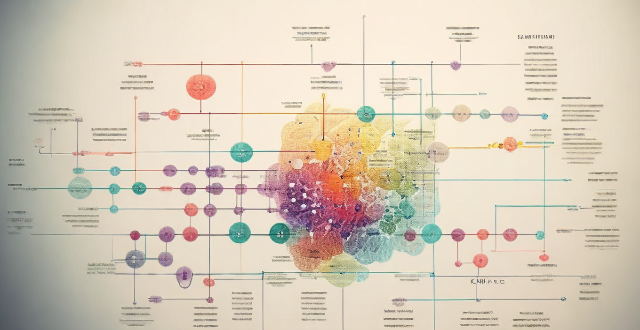
What are some effective strategies for lifelong learning ?
Lifelong learning is crucial for personal growth and adaptability. Effective strategies include setting clear goals, creating a learning plan, leveraging technology, practicing active learning, seeking mentorship, and embracing failure for continuous improvement.
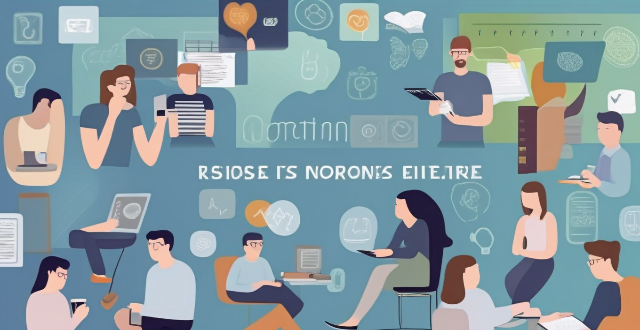
Can you recommend any good online learning resources for language learning ?
Here are some good online learning resources for language learning: Duolingo, Rosetta Stone, Memrise, Babbel, italki, Lingoda, Busuu, Coursera, Edx, and FluentU. These platforms offer courses in various languages and use different approaches to teaching, such as interactive lessons, immersive experiences, flashcards, conversation skills, one-on-one tutoring, and real-world videos.
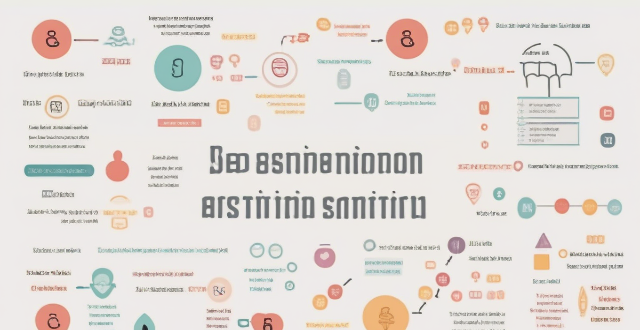
How can I develop a habit of lifelong learning ?
Lifelong learning is crucial for staying relevant and competitive. To develop this habit, set clear goals, create a learning plan, make learning part of your daily routine, embrace challenges, stay curious, connect with others, reflect on your journey, and continuously update your skills.

What are the best online learning resources for beginners ?
The text provides a list of online learning resources for beginners, including Khan Academy, Coursera, edX, Udemy, Codecademy, Duolingo, Skillshare, and LinkedIn Learning. Each resource offers courses in various subjects, from computer science to language learning, and many are free or have affordable options available.

How can employers encourage and support lifelong learning among employees ?
Employers can support lifelong learning by offering resources, encouraging participation in training programs, providing opportunities for career development, and creating a collaborative learning environment.
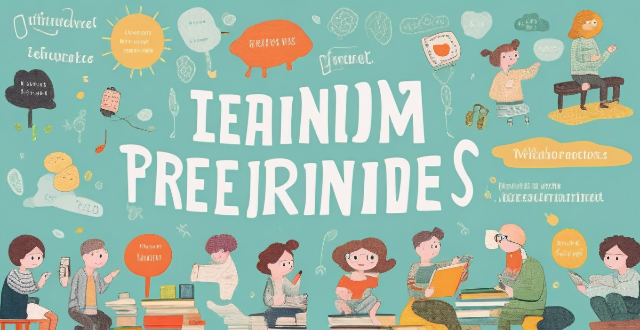
Are there any good online learning resources for language learning ?
Good online learning resources for language learning include Duolingo, Memrise, Rosetta Stone, Babbel, and Busuu. Each platform has its unique features and strengths, such as interactive lessons, memory techniques, immersive experiences, conversational focus, and community support. These resources can help learners achieve fluency in their target language by providing engaging and effective ways to learn vocabulary, grammar, pronunciation, and cultural insights.

What are some benefits of using online learning resources compared to traditional classroom learning ?
Online learning resources offer advantages over traditional classroom learning, including flexibility and convenience, cost savings, personalized learning experiences, exposure to diverse cultures, and development of technology skills.

What is lifelong learning and why is it important ?
Lifelong learning is the continuous process of acquiring new knowledge, skills, and attitudes throughout one's life. It is important for personal development, professional growth, social contribution, economic benefits, health and well-being, and global citizenship. To embrace lifelong learning, individuals can set learning goals, create a learning plan, seek out opportunities, stay curious, reflect on their learning, and share their knowledge with others.

How can I improve my breathing technique while swimming ?
Improving your breathing technique while swimming is crucial for better performance and endurance. Understand basics, practice proper rhythm, use core muscles, work on exhalation, do dryland training, visualize success, and seek professional guidance to enhance breathing and overall swimming skills.

Are there any proven scientific strategies for enhancing memory recall ?
Memory recall is the ability to retrieve information from our memory. It is an essential aspect of learning and can be improved through various scientific strategies. Here are some proven methods for enhancing memory recall: 1. **Active Learning**: Engaging with the material you want to remember, such as reading aloud, taking notes, or teaching others. 2. **Mnemonic Devices**: Techniques that help you remember information by associating it with something easier to remember, like acronyms, visual imagery, or rhymes. 3. **Spaced Repetition**: A learning technique that involves reviewing information at increasing intervals over time, using tools like flashcards or online tools. 4. **Elaborative Interrogation**: Asking yourself "why" questions about the material you are trying to remember to deepen your understanding and retention. 5. **Chunking**: Grouping related pieces of information together into larger, more manageable chunks to reduce cognitive load and make it easier to remember complex information. 6. **Sleep and Rest**: Getting enough sleep and taking breaks while studying can improve memory recall by allowing the brain to consolidate memories and prevent burnout. By incorporating these techniques into your study routine, you can improve your ability to retain and retrieve information from your memory.
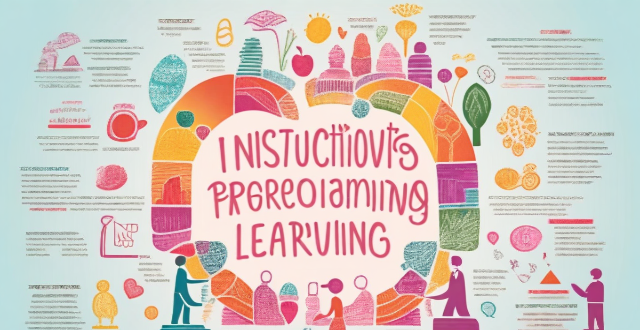
What role do educational institutions play in promoting lifelong learning ?
Educational institutions promote lifelong learning by encouraging a love for learning, providing access to educational resources, offering continuing education opportunities, and fostering collaboration and partnerships.

How do I start learning golf ?
Golf is a popular sport that can be enjoyed by people of all ages and skill levels. If you're interested in learning how to play golf, here are some steps to help you get started: 1. Understand the basics of golf, including the rules and etiquette. 2. Choose the right equipment, such as a set of beginner-friendly clubs. 3. Take lessons with a PGA professional for personalized instruction. 4. Practice regularly at a driving range, putting green, or chipping area. 5. Play on an actual golf course once you've gained confidence from practicing. 6. Join a golf community to enhance your learning experience and meet other players. 7. Stay patient and have fun while enjoying the process of learning and playing golf.

How does technology facilitate lifelong learning ?
Technology has revolutionized education, making it more accessible, interactive, and personalized. It facilitates lifelong learning through online resources, digital libraries, simulation software, gamification, adaptive platforms, mobile learning, social media groups, online workshops, instant feedback, cost efficiency, and globalization of education. Technology offers a wealth of benefits for learners of all ages and backgrounds.

How does proper handwashing technique prevent the spread of germs ?
Proper handwashing is a simple yet effective way to prevent the spread of germs. It involves using soap and water to clean your hands thoroughly, especially before eating or preparing food, after using the restroom, and after being in contact with someone who is sick. The key points on how proper handwashing technique can help prevent the spread of germs include: - Wet your hands with clean, running water (warm or cold), turn off the tap, and apply soap. - Lather your hands by rubbing them together with the soap. Be sure to lather the backs of your hands, between your fingers, and under your nails. - Scrub your hands for at least 20 seconds. Need a timer? Hum the "Happy Birthday" song from beginning to end twice. - Rinse your hands well under clean, running water. - Dry your hands using a clean towel or air dry them. By following these steps, you can effectively remove dirt, viruses, and bacteria from your hands, which can help prevent the spread of germs that cause infections like the common cold and flu. Additionally, proper handwashing technique can also help prevent the spread of more serious illnesses such as COVID-19, Ebola, and norovirus.
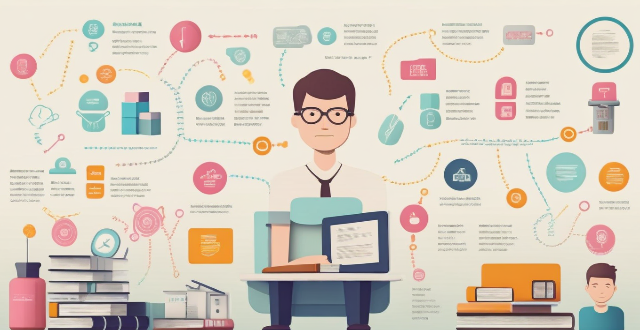
What are the benefits of using a remote education platform for learning ?
Using a remote education platform for learning offers numerous benefits that enhance the overall learning experience, including flexibility and convenience, personalized learning, collaboration opportunities, cost savings, access to quality education, improved learning outcomes, and environmental sustainability.
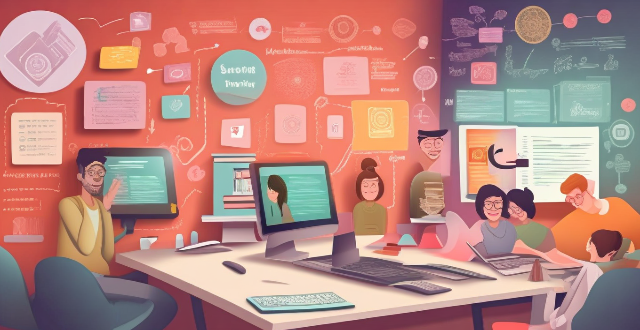
How does personalized learning through adaptive software benefit students ?
Adaptive software in education offers personalized learning experiences, enhancing student engagement, academic performance, and key skill development. It supports inclusive education, prepares students for future challenges, and makes learning more efficient and effective.

How does educational psychology impact student learning ?
Educational psychology plays a crucial role in understanding and enhancing student learning. It helps educators understand cognitive development, enhance motivation and engagement, promote social-emotional learning, address diverse learning needs, and evaluate teaching strategies and interventions. By incorporating insights from educational psychology into their practice, teachers can create a more effective and supportive learning environment for all students.

How does lifelong learning impact career development ?
Lifelong learning is a continuous process of acquiring new knowledge and skills that can significantly impact career development. It enhances skills, adaptability, creativity, personal growth, networking opportunities, and career longevity. By engaging in lifelong learning, individuals can stay relevant in their professions, adapt to changing job requirements, and increase their chances of career success.
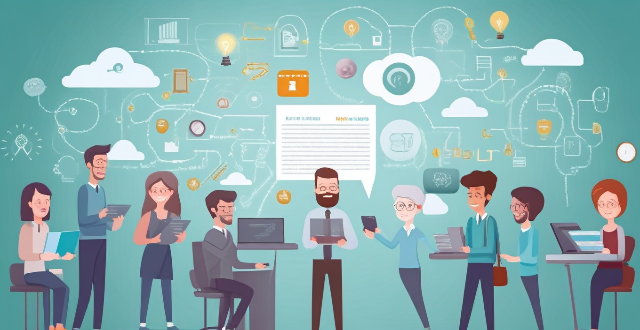
How do online learning platforms enhance student engagement and performance ?
The article discusses how online learning platforms enhance student engagement and performance. It mentions personalized learning experiences, interactive content and multimedia, collaboration and communication tools, gamification and rewards, flexibility and convenience, and immediate feedback and support as key features of these platforms that contribute to improved student outcomes.

Can reading about sports help improve one's own athletic performance ?
Reading about sports can enhance athletic performance by providing insights into techniques, strategies, and mental approaches. It helps in technique improvement, mental preparation, and injury prevention. To apply this knowledge, set clear goals, choose relevant resources, practice what you learn, and seek feedback for adjustments.
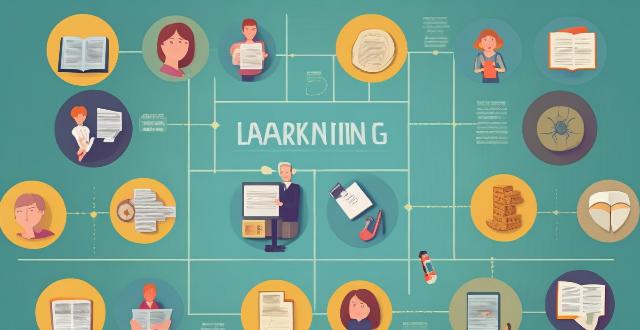
What are the benefits of lifelong learning ?
Lifelong learning, a process of continuous and voluntary learning throughout one's lifespan, offers numerous benefits that positively impact an individual's personal and professional life. These include improved cognitive abilities, increased self-esteem and confidence, personal fulfillment and satisfaction, enhanced career opportunities, higher earning potential, greater professional network, economic growth, social inclusion and cohesion, and environmental sustainability. By embracing the concept of lifelong learning, individuals can lead richer, more fulfilling lives while contributing positively to society as a whole.

What role does intrinsic motivation play in learning and how can I cultivate it ?
Intrinsic motivation is a key factor in enhancing the learning process. It leads to increased engagement, persistence, and deeper understanding of material. To foster this type of motivation, one should focus on promoting autonomy, competence, relatedness, personal interest, and a mastery orientation. Strategies include offering choices, providing clear feedback, building community, connecting to interests, and emphasizing the learning journey over just the outcome.